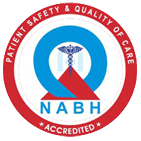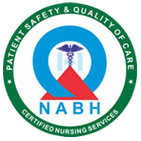Acute respiratory distress syndrome, or ARDS, is a serious inflammatory lung injury that causes dangerously low oxygen levels in the blood, called hypoxemia. ARDS can lead to a number of serious problems. It is life-threatening, so immediate attention is necessary.
What causes ARDS?
Many causes of ARDS have been identified. The most common cause is sepsis, which is a blood infection that occurs mostly in the hospital. Alcohol abuse seems to increase the risk of ARDS from sepsis. Aspiration of stomach contents into the lungs is a risk factor in hospitalized patients who have a tube placed into their lungs to manage their airways, known as intubation. Massive blood transfusion and acute pancreatitis can increase the risk of developing ARDS.
Outside of the hospital, community-acquired pneumonia is the most common cause of ARDS. Severe trauma and tissue injury can also cause ARDS.
People who overdose on drugs such as cocaine, opioids, and tricyclic antidepressants are in danger of getting ARDS.
What are the symptoms of ARDS?
Symptoms of ARDS include:
· Sudden breathlessness
· Rapid breathing
· Dizziness
· Rapid heart rate
· Excessive sweating
These symptoms are a result of fluids collecting within the lungs’ alveoli, the tiny sacs in the lungs that exchange gases. Cough and chest pain may also be present.
If the ARDS is caused by an infection, such as sepsis, the symptoms of infection will also be present (fever, low blood pressure).
How quickly can ARDS develop?
ARDS tends to develop within 48 hours of the event that caused it. It can worsen rapidly.
What tests are done to diagnose ARDS?
If a doctor suspects ARDS, a chest X-ray will usually be done to look for fluids composed of cell debris filling the alveoli. These are called lung infiltrates. If infiltrates are present, they affect the lungs’ ability to collect and distribute oxygen to cells. The lungs become stiff, leading to severe shortness of breath. A computed tomography (CT) scan also reveals lung infiltrates.
To exclude other causes of your symptoms, the doctor may order an echocardiogram and a sampling of lower respiratory tract tissue through a tube for culture and analysis under a microscope.
What complications can develop from ARDS?
The complications can be life-threatening, some of which are related to being in an intensive care unit. The most common ones are:
· Infections acquired in the hospital, related to being on the ventilator or to the placement of a central venous catheter
· Pneumothorax or lung collapse resulting from the pressure applied by the ventilator to the stiff lungs
· Deep vein thrombosis from a lengthy hospital stay
· Scarred lungs
How is ARDS treated?
Supportive care with mechanical ventilation (help moving air in and out of the lungs through the use of a ventilator) is the usual approach to treatment. No drug therapy has been shown to improve survival in ARDS. Researchers continue to work on finding treatment for ARDS.
What is the outlook for ARDS?
Although ARDS can be deadly, better care and improved ventilation treatments are making it less dangerous. More people are surviving ARDS now than in the past. Most patients can be weaned off the ventilator as their blood oxygen levels and lungs improve. Other patients with low blood oxygen levels have to remain on a ventilator for a longer period of time.
Some people who survive recover completely. Others develop chronic lung problems and may tire easily for years. They can also develop depression and anxiety. Most people, however, can eventually go back to work.




